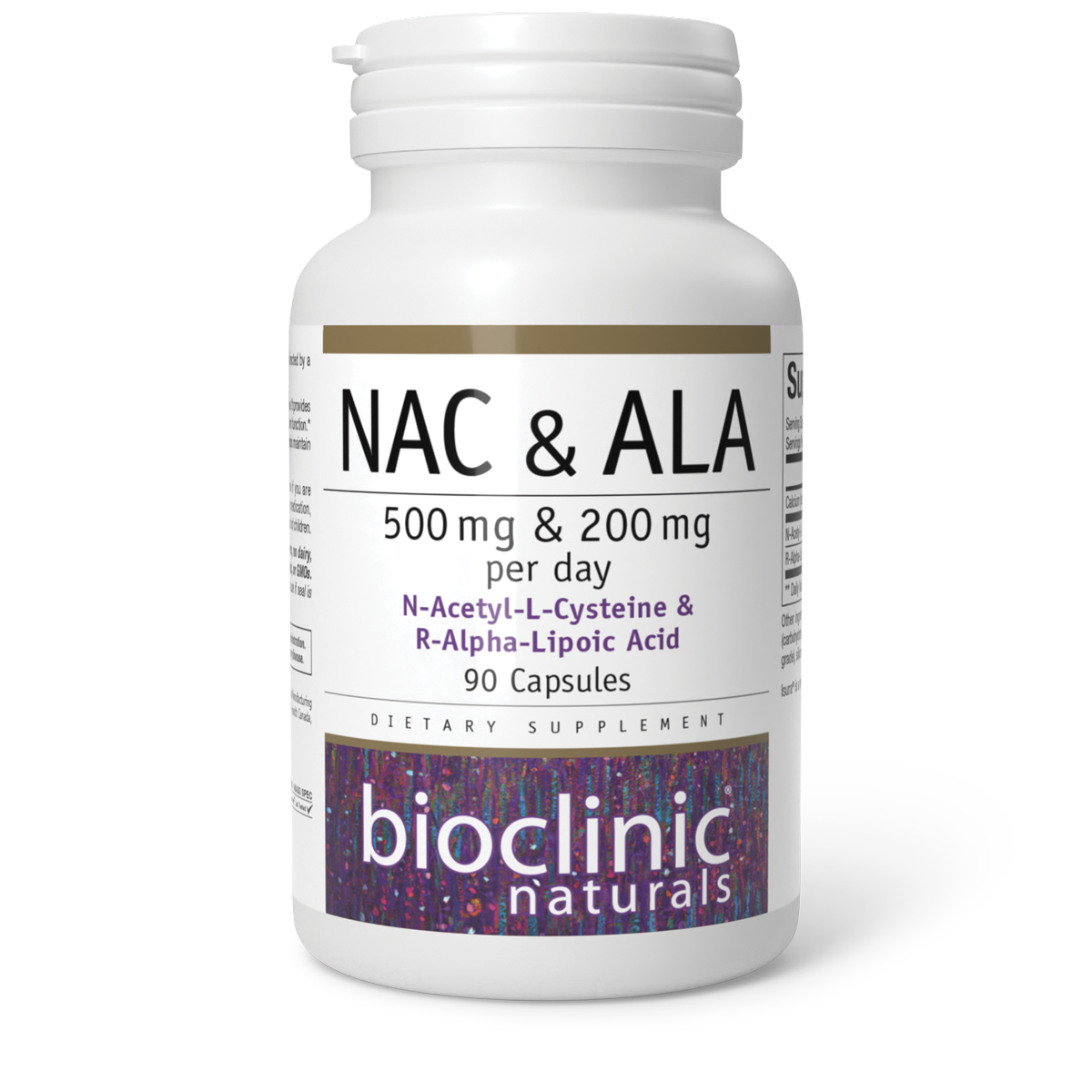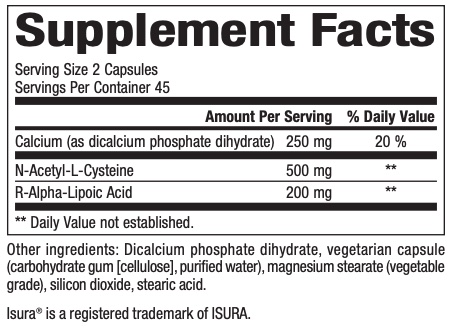
N-Acetyl-L-Cysteine & R-Alpha-Lipoic Acid
500 mg/200 mg
90 Capsules ( SKU: 9525U )
Supplement Facts:

Dosage:
Suggested Usage: 2 capsules per day with a meal or as directed by a health care professional.
Allergens:
Contains no artificial colors, preservatives, or sweeteners, no dairy, wheat, gluten, yeast, soy, corn, egg, fish, shellfish, tree nuts, or GMOs. Sealed for your protection. Do not use if seal is broken. For freshness, store in a cool, dry place.
